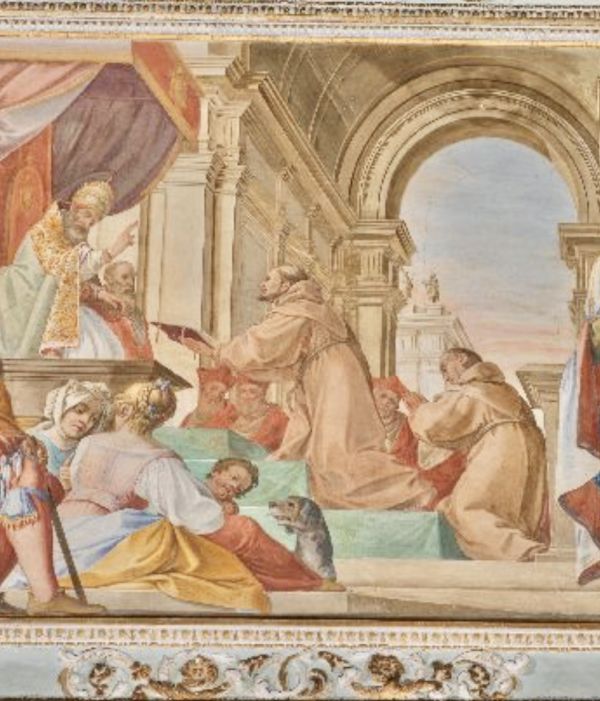The passage from Jn shows how Jesus receives testimony not from men, but from works done.
People do not believe in Him because the Son hears the voice of the Father who sent Him, and His Word does not dwell in their hearts.
Francis, in love with the Word, drew from it the strength of his witness. Like Jesus, the works he performed testified to the Father's mandate.
The Word of the Almighty remained in him and the love of the Lord dwelt in him.
The Poor Man did not seek glory that comes from men; on the contrary, he fled it to seek only that which comes from God - of a different flavour.
Humility was the measure of his living.
We find important references to this in the Sources.
For example, in the Letter to the whole Order we read:
"Incline the ear of your heart and obey the voice of the Son of God.
Keep his precepts in the depths of your heart and fulfil his counsels perfectly.
Praise him for he is good, and exalt him in your works, for this he sent you throughout the whole world, that you may bear witness to his voice in word and deed and make known to all that there is none Almighty but he!
The Greater Legend informs us:
"Like a burning coal, he seemed all consumed by the flame of divine love.
On hearing the name of the Lord's love, he immediately felt stimulated, struck, inflamed: that name was for him like a plectrum, which made the depths of his heart vibrate.
"To offer, in return for alms, the precious patrimony of the love of God," he said, "is noble prodigality, and most foolish are those who esteem it less than money, for only the inappreciable price of divine love is capable of buying the kingdom of heaven.
And much must we love the love of Him who loved us much" (FF 1161).
The testimony of the Creator's works appealed to him:
"In order to draw from everything incitement to love God, he rejoiced at all the works of the Lord's hands and, from this spectacle of joy, he went back to the Cause and Reason that makes everything live.
He contemplated, in beautiful things, the Beautiful One and, following the footsteps impressed in creatures, he pursued the Beloved everywhere.
Of all things he made himself a ladder to climb to grasp Him who is all desirable" (FF 1162).
And to his brothers he often repeated:
"No one should flatter himself with unjust boasting about those deeds, which even the sinner could do.
The sinner,' he explained, 'can fast, pray, weep, macerate his body.
But only one thing is not possible for him: to remain faithful to his Lord.
It is precisely this that we must glory in, if we give God the glory that is His due, if as faithful servants we attribute to Him all the good that He gives us' (FF 718).
«I do not receive glory from men. But I know that you do not have the love of God in yourselves» (Jn 5:41-42)
Thursday, 4th wk. in Lent (Jn 5:31-47)












